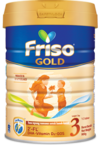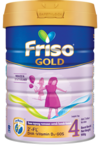Monitoring and Encouraging Physical Development in Early Childhood
How do you monitor physical development in early childhood? These are .... read more

Preferences of parents in choosing formula milk/susu for their child typically depend on price, quality, nutrition, and the list of “fortified ingredients.” While these factors are important to a certain extent, parents must also take the child formula milk’s origins into consideration as well.
Contrary to what most Asian parents are thinking, most premium formula milk/susu brands are, in fact, manufactured in Southeast Asia.11
Should parents mind and need to factor this in?
Yes.
The next time you walk down the supermarket aisle looking for a can of milk, we recommend you read the label to find out where the product is manufactured.11
When milk is not manufactured in Europe, it may not contain as many natural nutrients as the one that is made from start to end in the country of origin.11
This is due to the different manufacturing processes it goes through. A product made in Asia will go through a double manufacturing process while a formula milk/susu that is imported directly from Europe, Australia, and New Zealand, only goes through a single manufacturing process.11
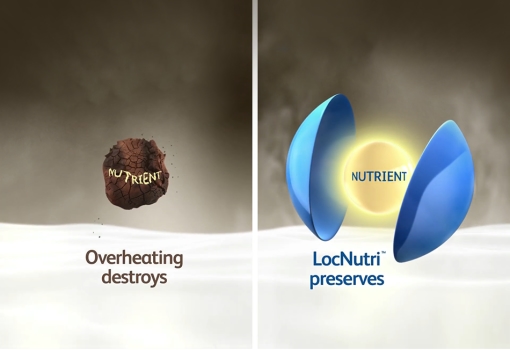
On the list of milk facts and myths, this one is definitely a hot subject as people are inclined to believe that the double manufacturing process is better as more steps are involved. To understand this, parents need to understand the difference between a single manufacturing process versus a double manufacturing process.
A double manufacturing process means the milk is typically sourced from farms most likely in Europe, Australia, or New Zealand before being exported to Asia for brands to add in their “fortified ingredients.”
So, yes, while the milk comes from cows that are reared overseas, they typically source it from a third party since they don’t actually own the farms or cows.
Once the milk is extracted from the cows, it is then transported to a factory to be made into powder and then sent to countries like Thailand, Singapore, or other Southeast Asian countries for brands to include their own ingredients.
During this process, the milk powder is subjected to multiple heat treatments and it is possible that many natural nutrients can be lost.
In cases like this, brands will then have to put on the can that the product is manufactured outside of Europe.
This is why a single manufacturing process is better simply because the products go through fewer heat treatments and more natural nutrients can be preserved.
A single manufacturing process is when the source of milk/susu comes directly from cows in the original country, converted into powder using milk heat treatment before being packaged and exported to be sold here in Malaysia.
Typically, this single manufacturing process means that a single company is behind the whole process, eliminating any need for third party involvement. It also means that the brand that owns the farm is able to control the environment in which the cows are reared to ensure a thriving atmosphere. Then when the milk is transported, it is done so at the right temperature. Moreover, before the milk is converted into powder, it is carefully tested for the right colour and scent to ensure that it is of highest quality.
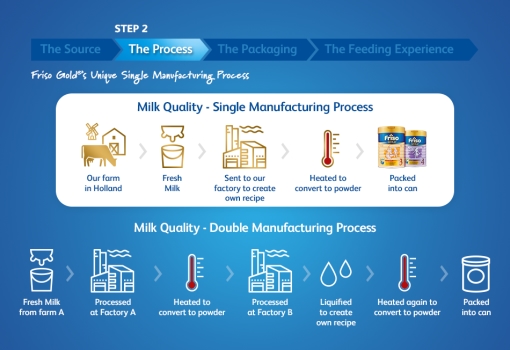
Another contender in the list of milk facts and myths is, DHA is the only thing that separates good milk formula from bad. Indeed, quality is the number one criterion cited by mums when choosing their child’s formula milk/susu.
However, as the saying goes, the gut is the second brain. What this means is that your child’s gut is also important for their growth, and it is important for milk formula/susu formula to be gut-friendly because easy-to-digest formula milk/susu will essentially support better absorption of key nutrients. This means that DHA is just one of the many nutrients that formula milk should have.
When choosing your child’s formula milk/susu, look for one with DHA, and also one that preserves 90%+ of natural nutrients for easy digestion.
Choosing the right growing up formula milk can be overwhelming. It's crucial to consult with a paediatrician who can provide personalised advice based on your child's specific nutritional needs and health status.
Thankfully, Friso ® Gold Step 3 exhibits exactly what good packaging design should entail for your child’s nutritional requirements.
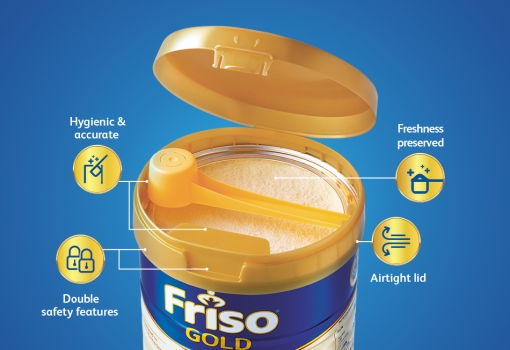
Part of giving your best as a parent is knowing where your child’s formula milk/susu is from as well as how it is made. When you look at your child's formula milk/susu label and identify the country it was manufactured in, you should be able to tell immediately if it had gone through a single or double manufacturing process.
Friso® Gold provides natural goodness of milk/susu starting from the source, thus ensuring the whole process of "Grass to Glass" and freshness of formula milk/susu is preserved through their unique protection lid packaging.
Undoubtedly, when parents take the time and invest energy to understand the manufacturing process, and take the right steps in choosing a formula milk/susu for their child, they truly are giving their best.
Try Friso® Gold Step 3 and Friso® Gold Step 4. Made with milk and processed only once with LocNutri™ Technology to preserve more than 90% of nutrients, Friso® Gold combines the magical goodness of nature with science to bring you easy to digest milk with more than 50 essential6 nutrients to help your child grow stronger from the inside. Friso® Gold now with NOVAS™ Signature Milk with naturally small molecules and soft structure, has no added sucrose or flavour for easy digestion so your child can be stronger inside. It is incredibly important for your child to have good digestion not only for their comfort but to also avoid complications in their future. You may request a sample: Try free 1-day trial pack or 50% off for 6 days-trial pack.
Friso® Gold 3
Friso® Gold 3 is for toddlers which are children between the ages 1 to 3 years old with Easy to Digest nutrients so they can be strong inside to experience life at its best and fullest with you.
DHA, AA, Omega 3&6 - To fuel learning growth. DHA is important for optimal visual and cognitive development1. AA is recognised for its key role for optimal health, cognition and development during foetal life2. Omega 3 and 6 fatty acids are important for normal development of the brain, nervous system, sensory organs and intelligence3.
Calcium, Protein, Vitamin & Minerals - Muscle and bone growth. Calcium helps in the normal growth and development of bones and teeth. Protein is essential for your child’s growth, maintenance and repair for the body4. Vitamins and minerals are vital for growth and metabolism5.
GOS, Nucleotides & Bifido Lactis - Helps absorb key nutrients. GOS are prebiotics that can help with constipation and more6. Nucleotides can promote healthy gastrointestinal and immunological growth in young children7. Bifido Lactis is important for diarrhoea prevention as well as improving a beneficial intestinal microflora8.
Friso® Gold 4
Friso® Gold 4 is made for children above the age of 3 and contains the right choice of nutrition support through its milk powder which are:
DHA, AA, Omega 3&6 - To fuel learning growth. DHA is important for optimal visual and cognitive development1. AA is recognised for its key role for optimal health, cognition and development during foetal life2. Omega 3 and 6 fatty acids are important for normal development of the brain, nervous system, sensory organs and intelligence3.
Calcium, Protein, Iron, Copper, Vitamin A and K1 - These nutrients give rapid growth of muscle and bone, as well as healthy vision to prepare the body for study as children of 4 years old begin their preschool education. Calcium helps in the normal growth and development of bones and teeth. Protein is essential for your child’s growth, maintenance and repair for the body4. When copper is combined with iron, it allows the body to build red blood cells as well as maintain healthy bones, blood vessels, nerves, and immune system9. Vitamin A enhances vision and immune functions10. Vitamin K1 helps make other proteins in the body that are important for blood, bone and kidney health and can be found in dark, leafy green vegetables11.
GOS, Nucleotides & Bifido Lactis - Helps absorb key nutrients. GOS are prebiotics that can help with constipation and more6. Nucleotides can promote healthy gastrointestinal and immunological growth in young children7. Bifido Lactis is important for diarrhoea prevention as well as improving a beneficial intestinal microflora8.
Parenting life is not easy, though every parent’s wish is for things to be simple. Sometimes, we have to make challenging decisions that can be borderline painful. But as parents, we aspire to give the best to our children. When we know better, we can have peace of mind and be happy to know that we are doing better. A pain or not, that, in itself, makes it rewarding.
References:

